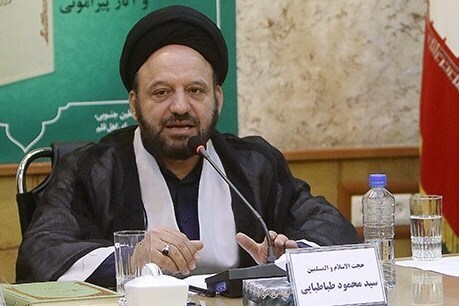Prophet Muhammad’s Leadership Marked by Mercy and Unity: Scholar

Hojat-ol-Islam Seyed Mahmoud Tabatabaei Nejad, a researcher at the Dar al-Hadith Institute, said Prophet Muhammad (PBUH) entrusted responsibilities even to former enemies, showing a level of tolerance that remains extraordinary.
“His style of leadership was to let people manage their own affairs, even those who had once opposed him. This is among the wonders of his character,” he said in an interview with IQNA.
Tabatabaei Nejad explained that the Prophet’s mission, according to the Quran, was based on “purification and teaching,” and that he endured many hardships in guiding people. He added that one of the Prophet’s key teachings was “compassion and mercy towards others.”
Read More:
Citing the Quran, the scholar stressed that unity is a divine blessing, while division is a tool of Satan. “A society filled with discord resembles hell, while unity makes families and communities heavenly,” he said.
He argued that the principle of enjoining good and forbidding wrong is meant to strengthen unity rather than cause division.
The scholar noted that forgiveness was central to the Prophet’s character. Referring to the conquest of Mecca, he said, “While some called it a day of revenge, the Prophet declared it a day of mercy and pardoned even his staunch opponents.”
He recalled that the Prophet granted amnesty to the household of Abu Sufyan and even appointed a young man from the Umayyad clan, who had previously mocked Islam, as governor of Mecca.
Read More:
He highlighted Quranic verses urging believers to respond to hostility with kindness, noting that such behavior often transformed enemies into friends. “The Prophet’s miracle was not only the Quran but also his ability to unite divided tribes into one community,” he said, citing historian Ibn Khaldun.
He noted that the Prophet’s legacy of mercy, inclusion, and leadership through unity remains a timeless example for humanity.
4304495



